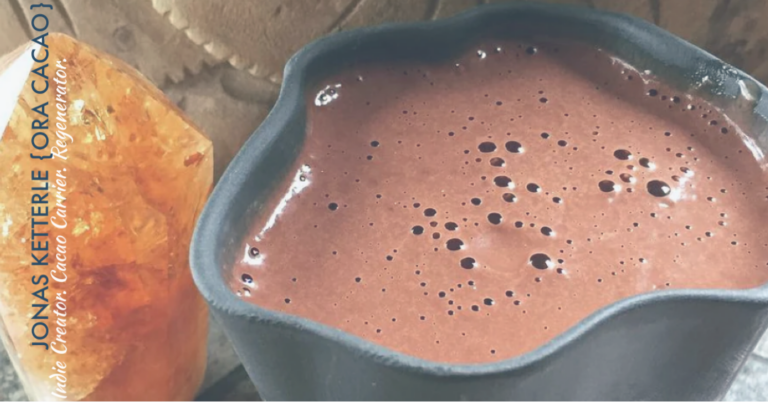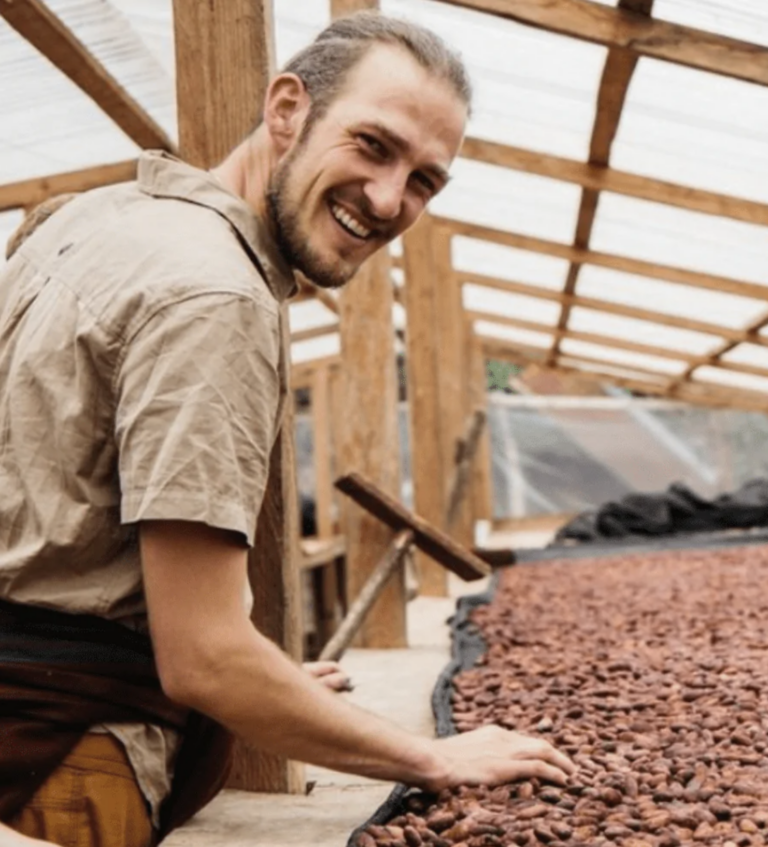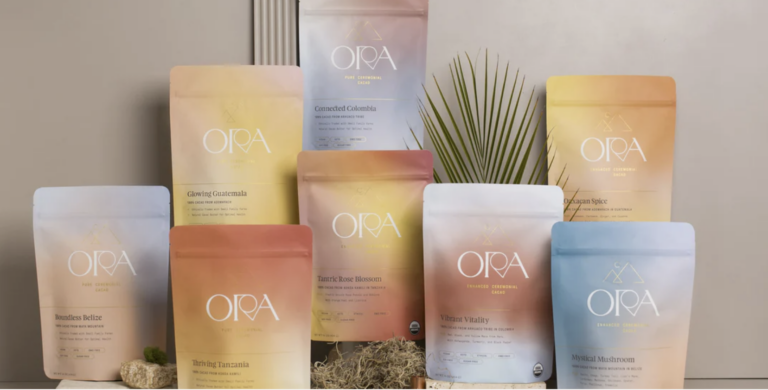Join Jonas Ketterle and Suzanne Toro as he takes us deeper into the medicine of cocoa and his business ‘Ora Cacao’. This segment will inspire, nourish and educate you with wisdom from nature, cocoa, global communities, regenerative economy + community, mushrooms and ceremony.

About Jonas, The Chocolate Lover
Jonas crafts unsweetened ceremonial grade cacao that is used in cacao ceremonies around the world. He hosts cacao ceremony monthly with his men’s circle, during which they drink cacao and then practice embodied wrestling. He also regularly teaches how to stone grind fresh cacao paste from the bean using a traditional metate. After first encountering sipping chocolate in Oaxaca Mexico in 2012, Jonas founded the bean to bar dark chocolate company, Firefly Chocolate, in 2014, with the mission of inspiring awe and wonder through cacao. Always with a focus on health, he initially launched 85% dark chocolate in a variety of flavors, sweetened with low glycemic coconut sugar. He also pioneered a bio-regional wild harvested chocolate bar, celebrating bay nuts, a food used by the native peoples of the SF Bay Area.

Beneficial Minerals
“Consuming cacao can replenish minerals vital to our body. Magnesium is chronically deficient in the majority of western diets, and cacao is the highest naturally occurring source. Magnesium is used in all key brain functions, especially memory and concentration. It is also beneficial for the function of the heart, acting to relax blood vessels and decrease strain. Besides magnesium, cacao is also the highest naturally occurring source of chromium, and also high in copper, calcium, manganese, zinc, sulfur, iron, and phosphorus.” Ora Cacao
SMALL HOLDER FARMS, NOT PLANTATIONS
“Ceremonial cacao begins with the communities that we work with to source our cacao. Unlike the majority of chocolate consumed globally, we don’t source from centralized plantations. We only buy from small-holder organic farms, typically 0.5 acre to 5.0 acres in size. To date we’ve sourced cacao from almost one thousand such farms.
Sourcing from small farmers, often living in indigenous communities, allows us to have a far more wide-spread social impact than paying just a single plantation, and it supports and values traditional ways of life in a time during which many of the communities we work with are struggling with the influences of modern civilization.
Small farms such as the ones we purchase are stakeholders in the communities and ecosystem. As such we often find superior environmental stewardship on these farms, employing not just organic principles but regenerative permaculture principles that actually improve the thriving of the land over time. This can look like tending to watersheds, building topsoil, or increasing biodiversity. The cacao grown on these farms tends to be a locally distinct genetic varietal, sometimes with an heirloom designation, that our partners support with seedling propagation in small nurseries. Cacao is an understory tree, so it lends itself well to polyculture agroforestry systems that produce abundant food staples and simultaneously offer ecosystem services such as habitat and buffer areas to intact rainforest areas.” Ora Cacao
